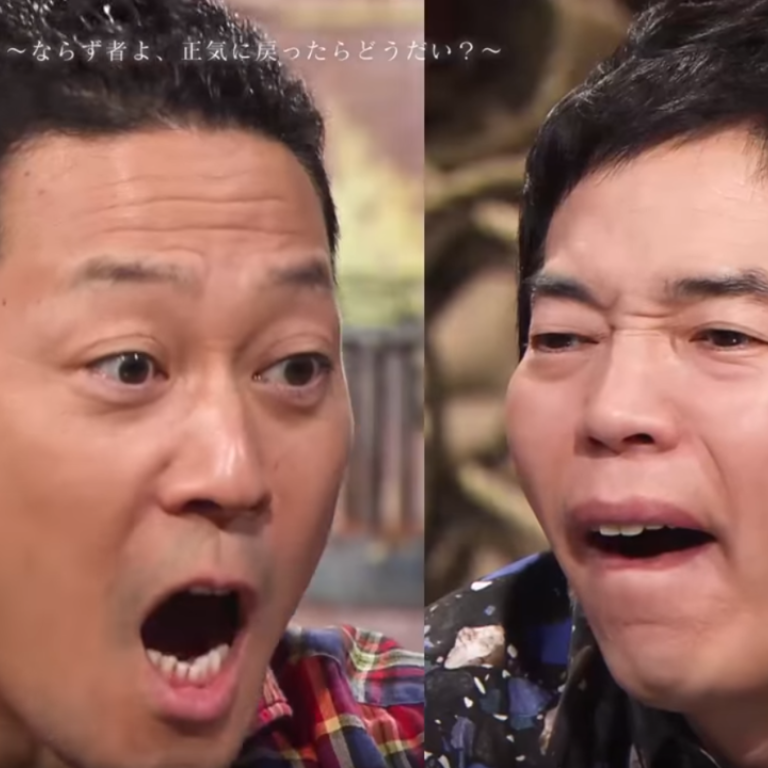
Japanese show Caligula from Amazon Prime is puerile and tasteless, you have been warned
The 20-episode first season is a lesson in offensive television programming. Proceed with caution
Crimes beyond counting have been committed in the name of television: The Apprentice; The X Factor; Jersey Shore; Big Brother, celebrity or otherwise; anything with Gordon Ramsay …
Now, chiselling the encrusted pustular dregs from the bottom of the barrel of bad taste comes Caligula, a Japanese television offering so repulsive and puerile it makes The Jeremy Kyle Show look like University Challenge. Some might say that, in mitigation, Japanese television is a law unto itself, harmless, quirky and best left in its own little universe. But if it crops up on Amazon Prime it’s fair game.
HBO Asia’s Folklore: regional horror guaranteed to get under your skin
Caligula, as you’re aware, was a barbaric, incestuous lunatic of a Roman emperor. Caligula, in his honour, investigates “the Caligula effect: the urge to do that which is prohibited”. Most desires on which its 20 crude episodes are based, however, aren’t prohibited, but exploitative, malicious or bloodthirsty. Nor, despite the tedious, boisterous banter of loathsome hosts Koji Higashino and Koji Imada, are they funny.
There’s the “quiz championship for the homeless … prize 300,000 yen”, during which Higashino and Imada howl with laughter at the contestants’ ignorance and expense. The instalment's supposed intention? To address the stigma surrounding the homeless.
There is also the “gorgeous women’s naughty lessons” episode, purportedly addressing Japan’s lack-of-sex crisis and climaxing with simulated fellatio. There is the “my-mother-wouldn’t-fall-for-it fraud championship”, in which the mothers of celebrity comedians fall victim to telephone swindlers. Purpose? To arm the public against scams. And then there is the “beautiful women hold a fart banquet” – revealing the true definition of ultimate beauty, obviously.
Running through this first series is Higashino’s “mission” to satisfy his obsession with killing something, for killing’s sake, by going hunting, initially for deer. But first his job is merely to cut the throat of a blameless deer shot moments before by a “real” hunter who usually lives, not in the wild, but in a suburban house, and who happens to own a rifle. This is not fair game; nor does skinning an animal and eating it to avoid wasting meat lend any spurious nobility or validity to the pointless enterprise.
Eventually, brave Higashino kills a wild boar by stabbing it with a knife attached to a long stick as it lies – legs bound, eyes and mouth wrapped in packing tape – on a restaurant kitchen floor having been taken, terrified, from its forest. This endeavour allegedly supports the idea that you shouldn’t eat anything you’re not prepared to kill yourself – a bogus argument easily circumvented by becoming vegetarian.
Also among the show’s infantile instalments is a clumsy homage to the absurd Japanese prank show, perhaps proving that audiences in the Land of the Rising Sun have developed a gene that allows them to detect amusement where others find bewilderment.
Remember: this is a nation that still thinks it’s a fun idea to slaughter whales and dolphins.
The Rise of Phoenixes’ 70-episode first season comes to a close
History’s onslaught has finally abated after 70 magnificent chapters of gruesome battles, palace politics, Machiavellian intrigue and the cruel denial of true love (but not cross-dressing) with the crescendo of series one of The Rise of Phoenixes, a Chinese Netflix original.
Never in the annals of television drama were so many sub-plots presented by so many characters in so many haute couture costumes. With history like this, who needs fiction?

